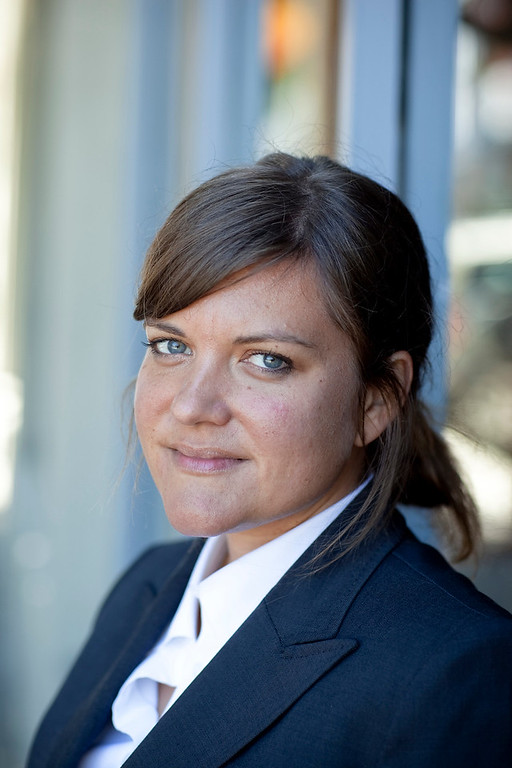Planting seeds of empathy: Emily Cox Pahnke receives Gamble Teaching Award for entrepreneurship curriculum
 So much of entrepreneurship is finding a creative way to solve a problem for the greater good. Sometimes that’s solving small, everyday problems. Other times, it’s finding solutions to bigger issues like better access to healthcare or helping the homeless. As entrepreneurs make their way through the Foster School of Business, they have Emily Cox Pahnke guiding them on how they approach these problems. She says the key is empathy.
So much of entrepreneurship is finding a creative way to solve a problem for the greater good. Sometimes that’s solving small, everyday problems. Other times, it’s finding solutions to bigger issues like better access to healthcare or helping the homeless. As entrepreneurs make their way through the Foster School of Business, they have Emily Cox Pahnke guiding them on how they approach these problems. She says the key is empathy.
“I think one of the fundamental insights into entrepreneurship that I think it’s important to teach students is that you have to get outside of your own head. A lot of times students think they are their own customer,” Pahnke explained. “But really, you have to gain empathy with other people.”
Pahnke is one of the winners of the 2021 Lex N. Gamble Family Award for Curriculum Excellence and Innovation for her curriculum for two classes: ENTRE 563: Opportunity Recognition and Validation for students in the MSEntre program and ENTRE 372: Grand Challenges for undergraduate students.
The purpose of this award is to encourage curriculum excellence and innovation at the Michael G. Foster School of Business, with preference for achievement in the development and promotion of business cases. At the Dean’s discretion, this award current gives special consideration to business cases that include diverse protagonists and incorporate and encourage discussions of inclusion and diversity. Pahnke was chosen because she redesigned her course materials to encourage students to discuss issues including social justice and racism in their classes and projects.
Making sense of the chaos
Opportunity Recognition and Validation is one of the first classes students take in the MSEntre program. Pahnke designed the class to help students think about things like design thinking, creativity, where to find good ideas, and once you have them, how to validate that they are worth making businesses out of.
Grand Challenges is designed so students look at big problems facing the world—poverty, education, climate change, etc.—through the lens of entrepreneurship. “We analyze organizations of all kinds and look at how they are attempting to address these big problems using the tools of entrepreneurship,” said Pahnke.
Both classes are project based. Students complete a series of projects throughout the quarter, many of which involve going out and collecting primary data. Pahnke requires students learn how to do interviews and engage with the community. The goal: help students see how others think and how they approach problems.
“We each have our own lived experiences that are really different from other’s experiences,” Pahnke explained. “I think the best we can do is to try to gain empathy with different people’s experiences. And the tools that we discuss in class can help students do that. They are beneficial on so many fronts.”
It’s because of how these classes are structed that Pahnke says there was already some element of diversity, equity and inclusion built into the class. Her students are looking at how to solve problems caused by socioeconomic or infrastructure differences, or problems that need different perspectives to solve. But Pahnke decided to figure out how to really bring the DE&I lens into focus as students make their way through the courses.
“It’s been useful for me to be more explicit in trying to make sure between the readings, the podcasts, the videos and the guest speakers that every student has someone who they can see themselves in for one reason or another,” Pahnke said. That included bringing in more diversity in the guest speakers who come to class as well as finding articles and podcasts that showcase the topics from diverse perspectives.
It’s not just creating a diversity in the voices students experience during the quarter. Pahnke is creating diversity in the resources students will come back to, because she knows her class is often the starting point for a lot of entrepreneurs.
“Research indicates most successful entrepreneurs don’t start their first business until their late 40s, so for me it’s really just planting seeds,” she explained. “Hopefully they’re planting seeds for seeing a problem in the future, when they’ll have the tools to understand the problem or understand it from different people’s perspectives and be able to solve it.”
That’s why Pahnke has structured the class to be a little different than the traditional business class. Instead of having students read about something, then having them do homework on that subject, Pahnke has students do a lot of different things, then she helps the students make sense of it. It’s helping the students make sense of the chaos that is one of her favorite parts of teaching these classes.
“The goal of it all is to help them get more comfortable with ambiguity. It’s a hard skill to teach, but it’s vital for entrepreneurs– if you’re creating something that’s never been done before or hasn’t been done well. You have to convince other people it’s worth doing. That really starts from digging into ambiguity and finding certainty where you can,” Pahnke said.
Pahnke has taught both classes for several years now and has no plans to stop. In fact, she’s looking forward to teaching both classes in the future because students want to tackle complex issues.
“I love to see more and more that students don’t really see the dichotomy between business and treating the world and other people well,” she explained. “I love that it’s so easy for students to do these things together.”
